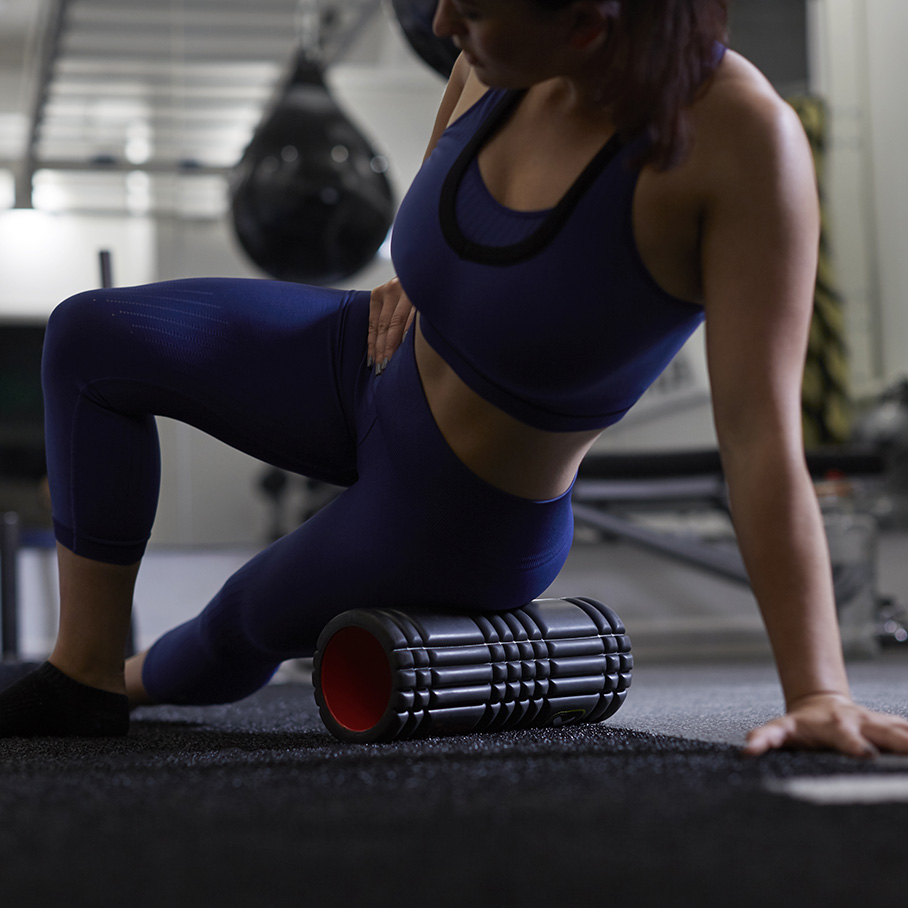Rehabilitative Personal Training
Restore your strength with our specialist personal trainers in the City of London
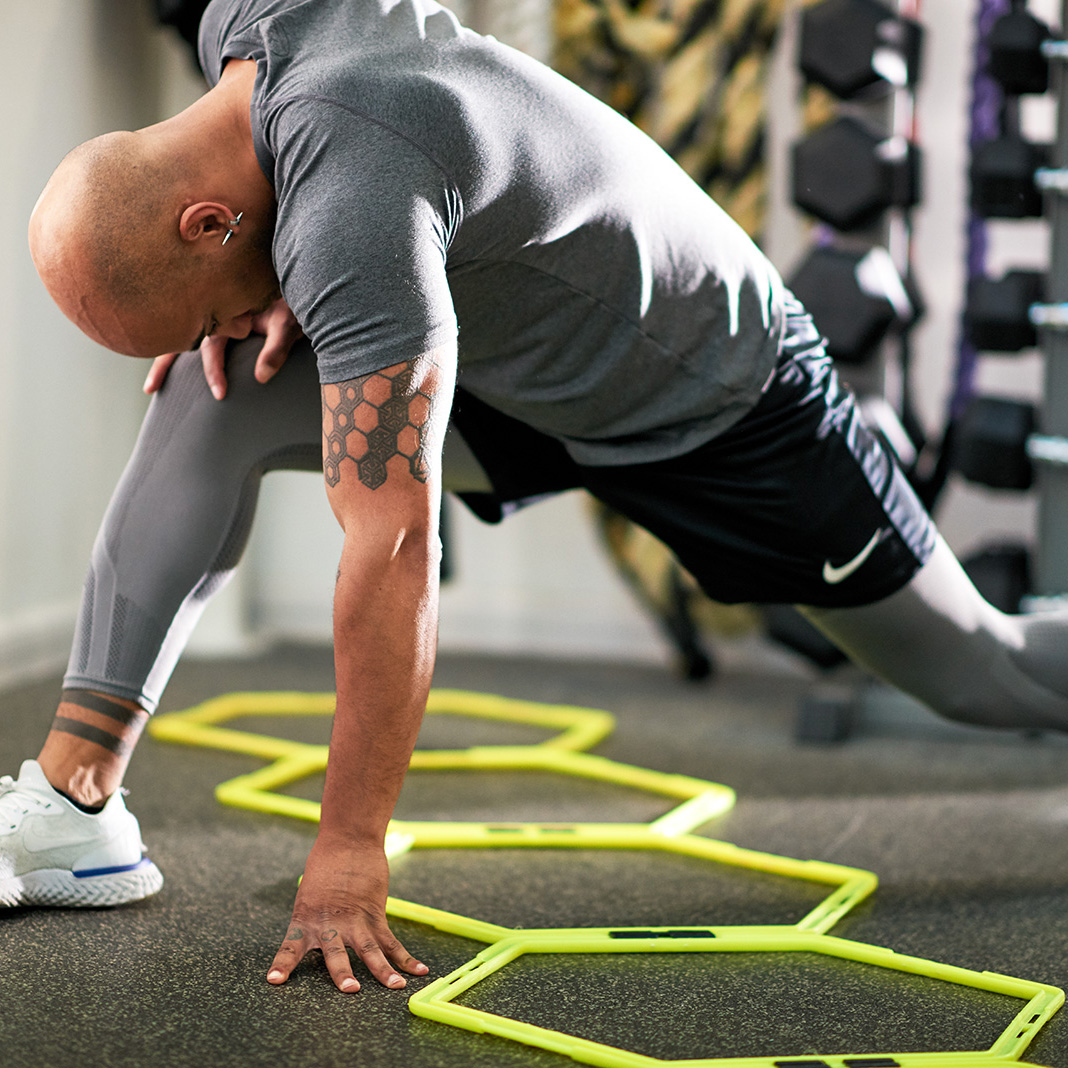
Who is rehabilitative personal training for?
If you’ve experienced joint pain, back pain, or suffered an injury, our rehabilitative personal training is designed with you in mind. Our expert trainers are committed to helping you rediscover your strength and mobility, while teaching you how to care for your body in the long term. Our personalised programmes focus on improving core strength, joint stability, and overall mobility, allowing your body to move as it was meant to.
Rehabilitative personal training serves as the ideal next step following physiotherapy or chiropractic care, guiding you back to full strength and function. With our specialist trainers, you’ll not only help to alleviate pain and discomfort but also learn how to prevent future issues, paving the way for a healthier, more active lifestyle.
Restore your strength with one of our specialist rehabilitative personal trainers
What people are saying about our rehabilitative personal training programmes
Benefits of Rehabilitative Personal Training at Elevate LDN
Expert Trainers
Our rehabilitation-focused personal trainers boast a diverse range of qualifications, encompassing disciplines such as sports therapy, Dynamic Neuromuscular Stabilisation (DNS), and the National Academy of Sports Medicine’s Corrective Exercise Specialism (NASM CES). This extensive expertise enables us to provide well-rounded, effective training for your unique needs.
Clinical Connection
At Elevate LDN, we’re based within a multidisciplinary healthcare clinic, fostering a collaborative environment where our trainers continuously learn from healthcare professionals. This unique setting enables us to offer expert guidance and, when necessary, seamlessly refer clients to specialists for additional support, ensuring a holistic approach to your rehabilitation journey.
Full-Spectrum Support
As a fitness studio, we’re uniquely positioned to guide clients through their entire recovery journey, from the initial stages of acute injury rehabilitation to the heights of fitness and performance training. Our seamless, all-encompassing approach ensures you receive the support and expertise needed to achieve your goals and maintain long-term progress.
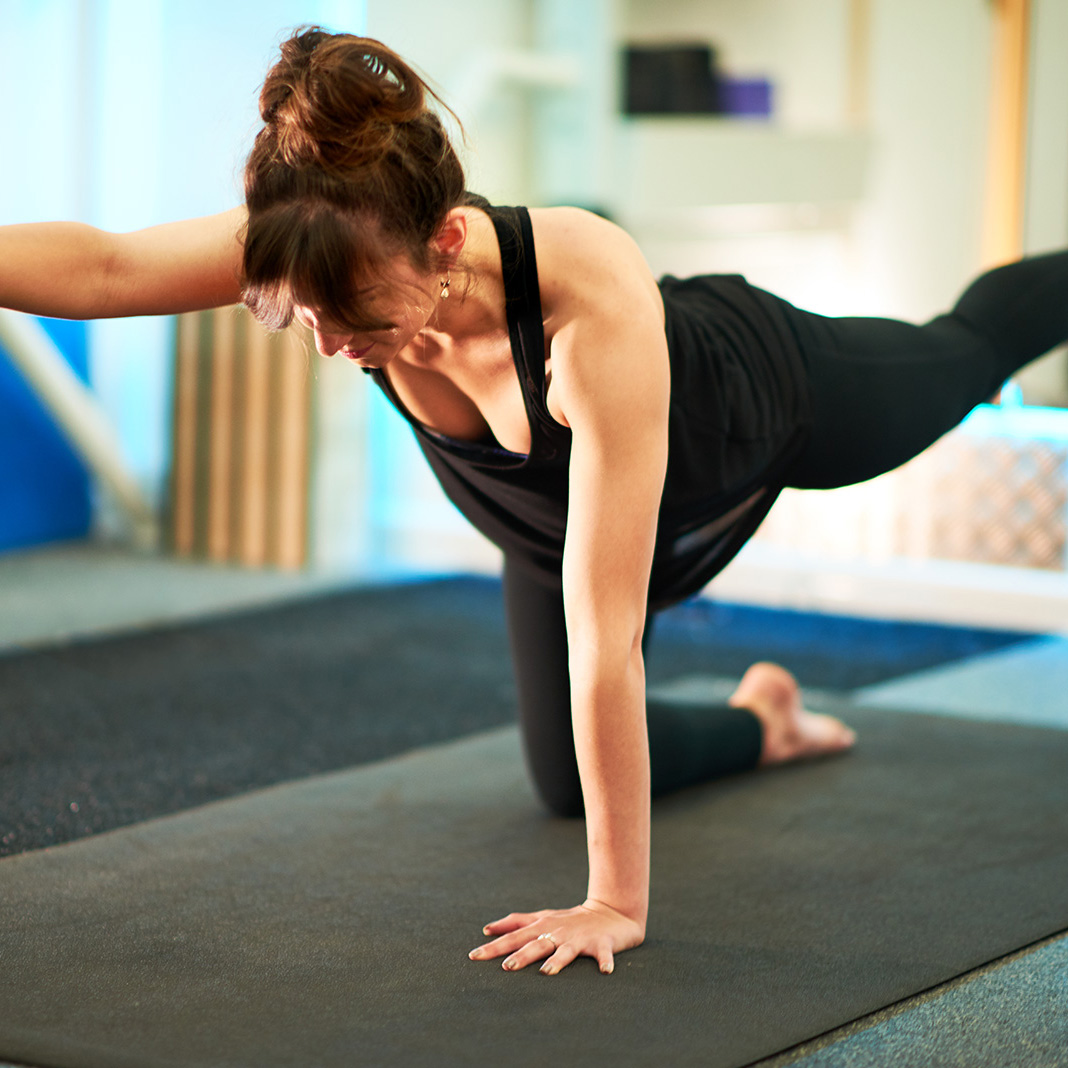
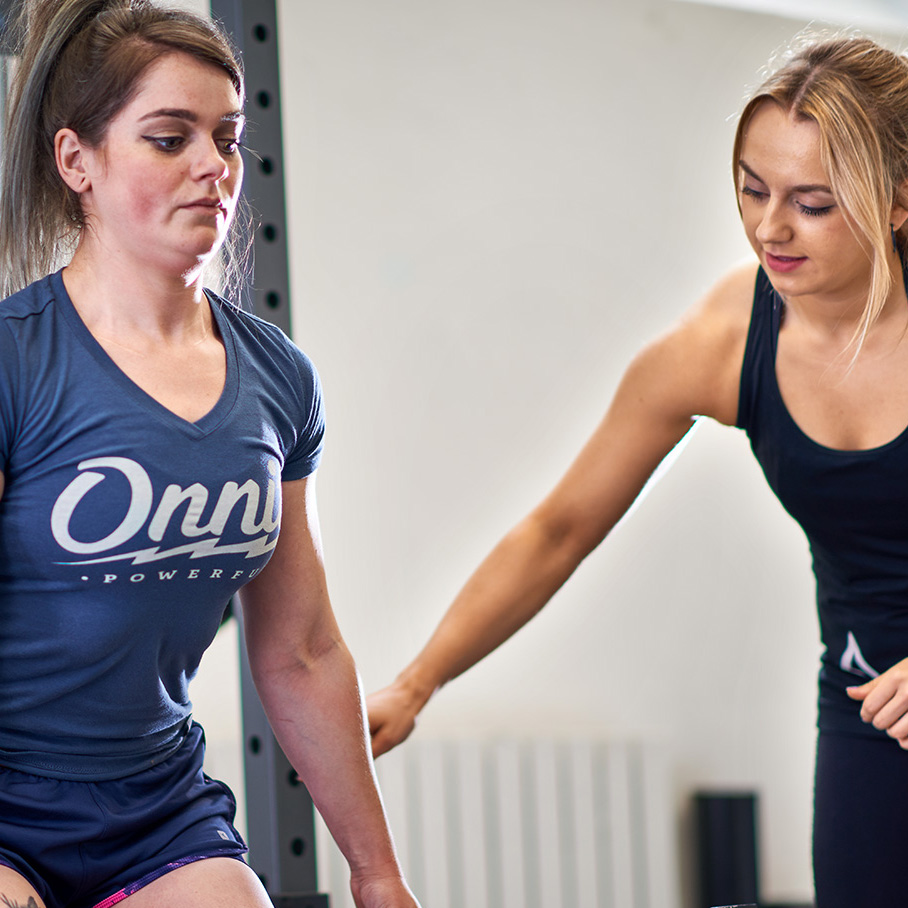
What does it involve?
Movement Assessment
Movement assessments are integral to all our programmes but they are particularly crucial in rehabilitation personal training. All training starts with an assessment of your posture, movement and mobility.
This enables us to build a programme that allows you to progress steadily and safely while minimising the risk of re-injury.
Core and Breathing
Our specialist rehabilitation personal trainers analyse how well you use your core from breathing to stability. We see this as the foundation of healthy, pain-free movement.
This insight helps us select the most effective exercises for proper core muscle activation, crucial for those who have experienced back pain. pain.
Balance and Stability
During movement assessments, we examine your balance during everyday single-leg movements, vital for preventing hip, knee, and ankle injuries.
Joint stability is also essential; many joint problems stem from instability, so enhancing it can help protect against injury.
Movement Quality
“Move well then move often” is an adage we live by. Repeating poor quality movement can lead to injury.
Therefore we look at how you move through a range of exercises so that we know exactly what to focus on. Then you can safely progress without aggravating old injuries.
Core Function and Stability
In clients with back pain or other injuries, or those with sedentary work lifestyles, core muscles often function improperly.
Training that targets core function improvement can boost back strength and stability and even improve how you breathe.
Breathing
Many people struggle with proper breathing, which hinders effective core muscle usage.
We’ll teach you exercises and techniques to breathe correctly, reducing neck and shoulder tension while strengthening your core muscles.
Core Stability
The next key role of the core is to stabilise the spine and trunk, maintaining a healthy spine position while sitting, standing and moving.
Our coaches will show you how to properly engage the core muscles and use them correctly. You’ll see there is a lot more to core training than sit-ups and planks.
Dynamic Core Work
Once you’ve mastered proper breathing and stabilisation, you can safely and efficiently perform dynamic movements, ideal for returning to demanding sports.
We’ll guide you through safely progressing to dynamic and loaded movements while using your body correctly.
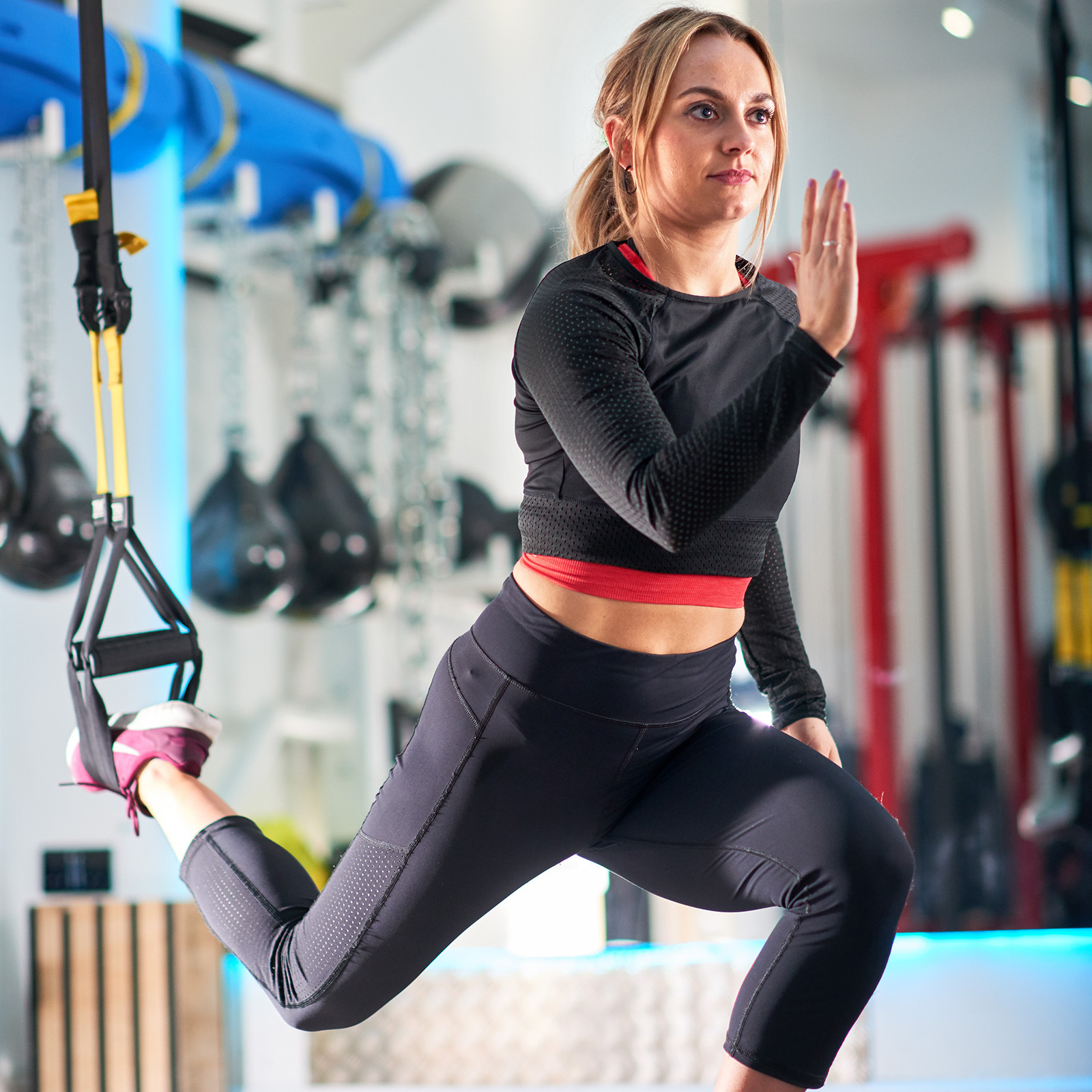
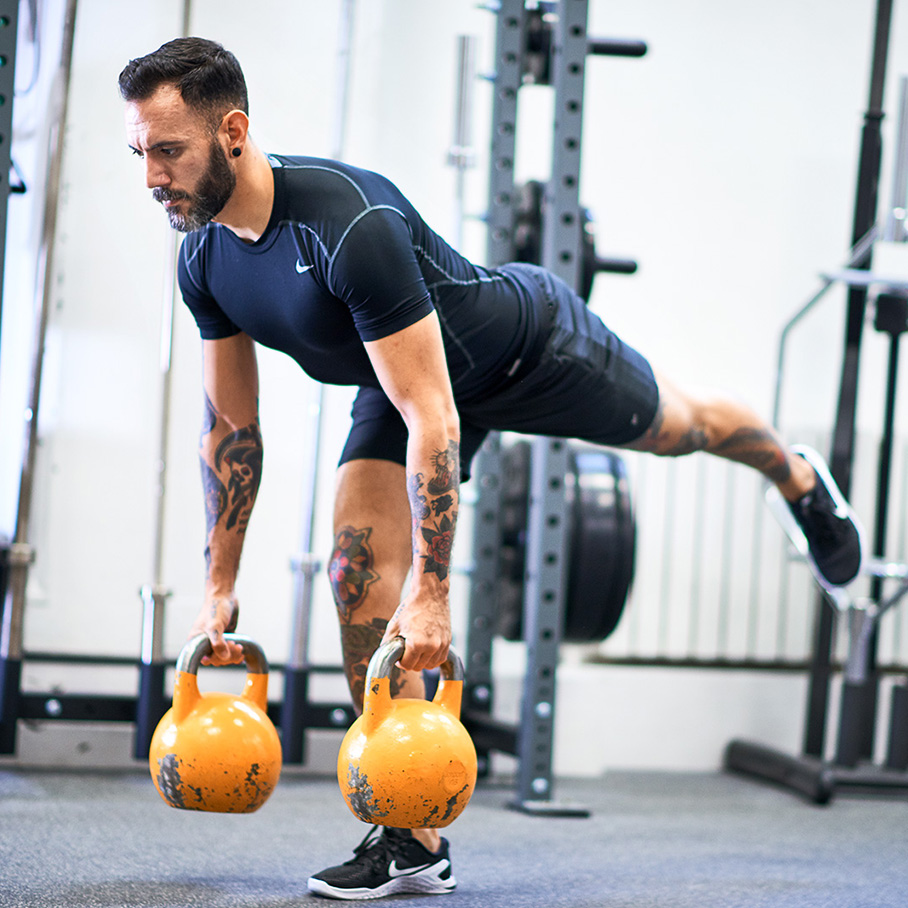
Movement Coaching
Modern lifestyles often lead to poor movement, resulting in injury and pain due to inadequate joint, muscle, and tendon loading.
We coach you to enhance body movement, protecting joints, increasing flexibility, and promoting efficient movement in daily life or sports.
Mobility and Stability
Gain the flexibility and control to move well and minimise your injury risk. See what exercise are best for your body and your needs.
Our specialist trainers know that not all exercises are right for everyone. Therefore our programmes are designed to give you exactly the right exercises to safely progress.
Balance and Coordination
When walking, we spend more time on one leg than two, yet we often struggle with balance. Learn to properly use your muscles to keep you upright and stable.
Coordination also plays a huge role in keeping us free from injury whether in daily life or sports. Developing this ability will keep you agile and healthy.
Exercise Technique
Poorly performed exercise can do us more harm than good, so learn how to perform exercises effectively and safely.
We’ll give you the coaching and feedback needed to boost your confidence to be able to train without fear of injury.
Accelerate your recovery with one of our specialist rehabilitative personal trainers
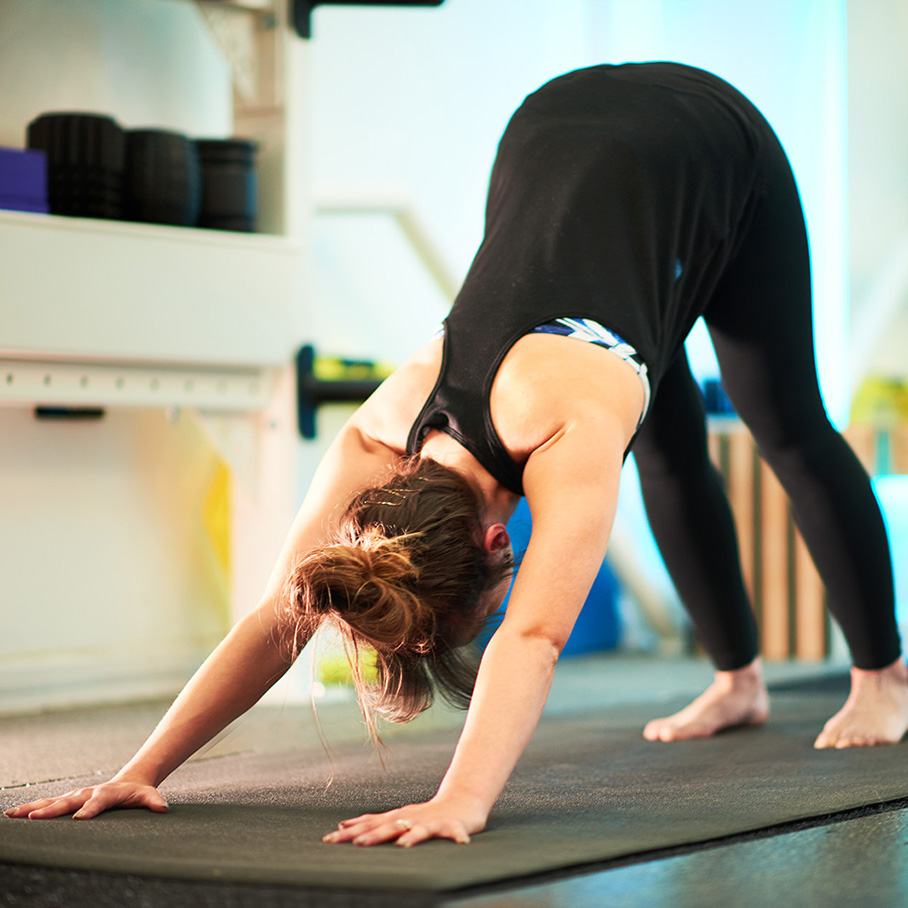
What conditions have our personal trainers worked with?
Our team of rehabilitation focused personal trainers have a combined experience of well over 30 years and in that time they have dealt with clients with a wide range of conditions including the following:
- Disc Herniation
- Facet Joint Dysfunction
- Disc Degeneration
- Spondylolisthesis
- Discectomy
- Scoliosis
- Sciatica
- Postural Issues
- Rotator Cuff Tears
- Frozen shoulder (adhesive capsulitis)
- Shoulder Impingement
- Rotator Cuff Tendinopathy
- Bursitis
- Thoracic outlet syndrome
- Shoulder dislocation
- ACL tear
- MCL tear
- Meniscus tear
- Patellar tendinitis (Jumper’s knee)
- Osgood-Schlatter disease
- Chondromalacia patellae (Runner’s knee)
- Iliotibial band syndrome (ITBS)
- Knee bursitis
- Osteoarthritis
- Knee replacement
- Infrapatellar fat pad syndrome
- Hip labral tear
- Osteoarthritis
- Bursitis
- Hip impingement (FAI)
- Iliotibial band syndrome (ITBS)
- Muscle Strains
- Total hip replacement
- Hip resurfacing
- Ankle sprain
- Achilles tendinitis
- Plantar fasciitis
- Posterior tibial tendon dysfunction (PTTD)
- Peroneal tendonitis
- Ankle impingement
- Tarsal tunnel syndrome
- Morton’s neuroma
- Flat feet (fallen arches)
- Tennis elbow (lateral epicondylitis)
- Golfer’s elbow (medial epicondylitis)
- Carpal tunnel syndrome
- Wrist sprain
- Elbow bursitis
- Wrist tendonitis
FAQs
Rehabilitative training focuses on addressing specific injuries or conditions, while regular personal training typically aims to improve overall fitness and well-being. Rehabilitative sessions involve tailored exercises and techniques to aid in recovery, restore function, and prevent future injuries.
